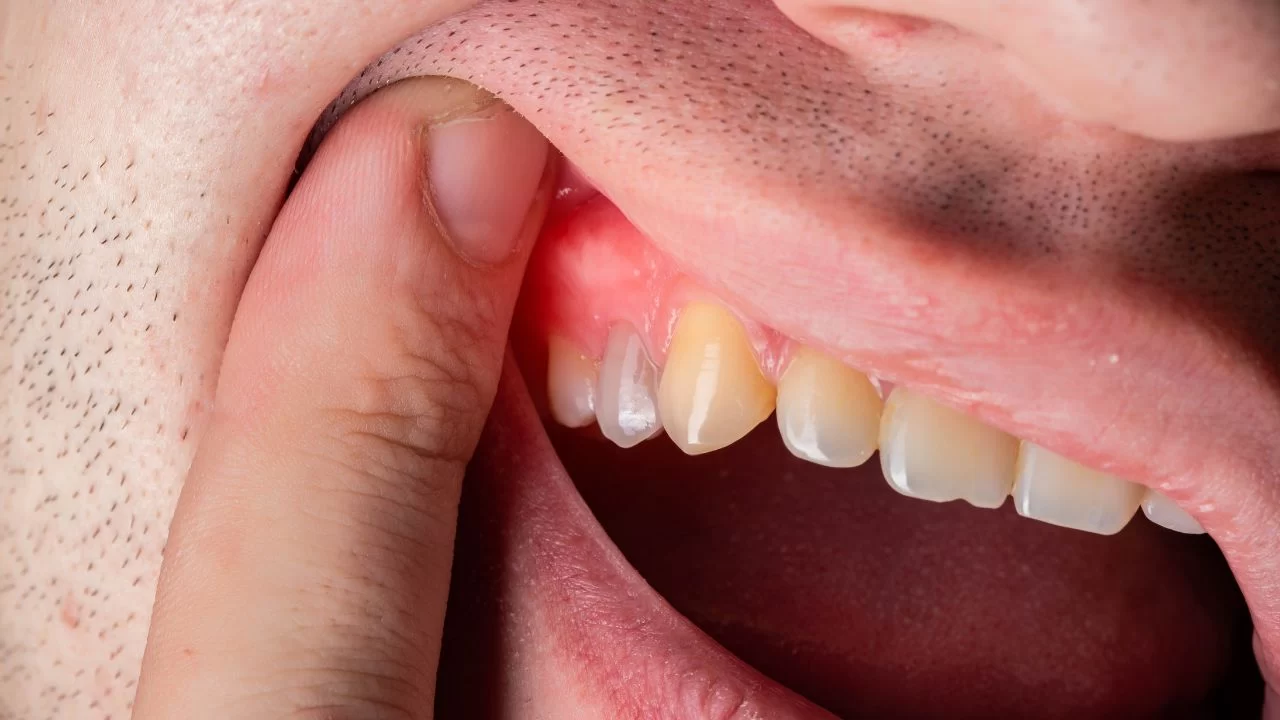
How to Treat a Dental Cyst in the Gums: Understanding Treatment Options and Prevention
- What Is a Dental Cyst in the Gums?
- Signs and Symptoms of a Gum Cyst
- Treatment Options for a Dental Cyst
- When to Seek Dental Care for a Gum Cyst
- Prevention of Dental Cysts
What Is a Dental Cyst in the Gums?
A dental cyst is a sac-like pocket of tissue filled with fluid, air, or other material that forms in the gums, jawbone, or around a tooth. These cysts can form for a variety of reasons, including infection, injury, or as a result of an impacted tooth. While some dental cysts are small and go unnoticed, others can cause pain and swelling, leading to discomfort and potential complications if left untreated.
Although dental cysts can occur anywhere in the mouth, they are particularly common in the gums around the teeth. They are often diagnosed during routine dental exams and may require professional treatment depending on their size and location.
Signs and Symptoms of a Gum Cyst
The signs of a dental cyst in the gums can vary from person to person, but common symptoms include:
- Pain or discomfort: If the cyst becomes infected, it may cause pain or tenderness in the affected area.
- Swelling or a bump: You might notice a small, fluid-filled lump on your gums, especially near a tooth.
- Bad breath or an unpleasant taste: If the cyst is infected, it may release pus, leading to bad breath or a bad taste in your mouth.
- Sensitivity to touch or pressure: The area around the cyst may feel sore or sensitive when touched or while chewing.
- Movement of teeth: In some cases, a dental cyst can cause the teeth to shift or become loose due to pressure on the surrounding bone and tissues.
If you experience any of these symptoms, it’s important to consult a dentist for an evaluation and potential treatment.
Treatment Options for a Dental Cyst
Treatment for a dental cyst depends on its size, location, and whether it’s causing pain or other complications. Here are some common treatment options:
- Drainage: If the cyst is infected, your dentist may drain it to remove the pus and relieve pressure. This can help alleviate pain and prevent the infection from spreading.
- Cyst Removal: In many cases, the cyst will need to be surgically removed. This is typically done under local anesthesia to ensure the procedure is painless. Removing the cyst completely can prevent it from reoccurring.
- Root Canal Treatment: If the cyst is associated with an infected tooth, your dentist may recommend a root canal to treat the underlying cause of the infection and preserve the tooth.
- Antibiotics: If the cyst is infected, your dentist may prescribe antibiotics to help control the infection before any surgical treatment is done.
- Observation: In some cases, if the cyst is small and not causing any symptoms, your dentist may recommend monitoring the cyst to ensure it doesn’t grow or become infected.
Your dentist will discuss the best treatment options based on your specific situation. It's essential to address a dental cyst early to avoid complications, such as bone loss or damage to nearby teeth.
When to Seek Dental Care for a Gum Cyst
If you notice any of the symptoms of a gum cyst, it's important to seek dental care as soon as possible. Early treatment can prevent the cyst from becoming larger or causing more severe complications, such as infections or damage to surrounding teeth and bone.
You should seek dental care immediately if:
- The cyst becomes painful or swollen.
- There is a visible bump on your gums that is not going away.
- You experience persistent bad breath or a bad taste in your mouth.
- Teeth near the cyst begin to shift or feel loose.
Ignoring these symptoms could lead to further complications, including infection that could spread to other parts of your body, so timely care is essential.
Prevention of Dental Cysts
While some dental cysts are caused by genetic factors or trauma, there are steps you can take to reduce your risk of developing one:
- Maintain good oral hygiene: Regular brushing and flossing can prevent infections that lead to cysts. It’s important to brush your teeth twice a day and floss daily to remove plaque and food particles.
- Regular dental checkups: Visiting your dentist for routine checkups ensures that any potential issues, such as cavities or gum disease, are addressed before they develop into more serious problems.
- Prompt treatment of tooth infections: If you notice any signs of a tooth infection, such as pain or swelling, seek treatment right away to prevent the infection from spreading and forming a cyst.
- Wear a mouthguard: If you play contact sports or grind your teeth at night, wearing a mouthguard can help protect your teeth from injury that may lead to cyst formation.
By following these steps, you can reduce your risk of developing a dental cyst and maintain healthy teeth and gums.
If you suspect you have a dental cyst or have any concerns about your oral health, don’t wait to seek professional help. For more information on dental cysts and treatments, visit Dentistry Toothtruth to learn more about prevention and treatment options.







 Dentistry for Children of Jackson4.0 (545 review)
Dentistry for Children of Jackson4.0 (545 review) EZ Dental5.0 (53 review)
EZ Dental5.0 (53 review) Pro Dentists of Buford4.0 (575 review)
Pro Dentists of Buford4.0 (575 review) Valley View Dental4.0 (1195 review)
Valley View Dental4.0 (1195 review) Parlor Dental5.0 (27 review)
Parlor Dental5.0 (27 review) Oswego Commons Family Dental4.0 (972 review)
Oswego Commons Family Dental4.0 (972 review) The Importance of Oral Health Education During Pregnancy for a Healthy Pregnancy
The Importance of Oral Health Education During Pregnancy for a Healthy Pregnancy Best Tips for Brushing Your Teeth Properly for Healthy Gums: Essential Techniques for Oral Health
Best Tips for Brushing Your Teeth Properly for Healthy Gums: Essential Techniques for Oral Health Why Skipping Dental Checkups Can Lead to Bigger Oral Health Problems
Why Skipping Dental Checkups Can Lead to Bigger Oral Health Problems Advantages of Porcelain Dental Restorations
Advantages of Porcelain Dental Restorations How Can Diabetes Cause Tooth and Gum Problems? Preventing and Managing Oral Health Issues
How Can Diabetes Cause Tooth and Gum Problems? Preventing and Managing Oral Health Issues Healthy Habits for Promoting Good Oral Health and Hygiene: Tips for a Healthy Smile
Healthy Habits for Promoting Good Oral Health and Hygiene: Tips for a Healthy Smile